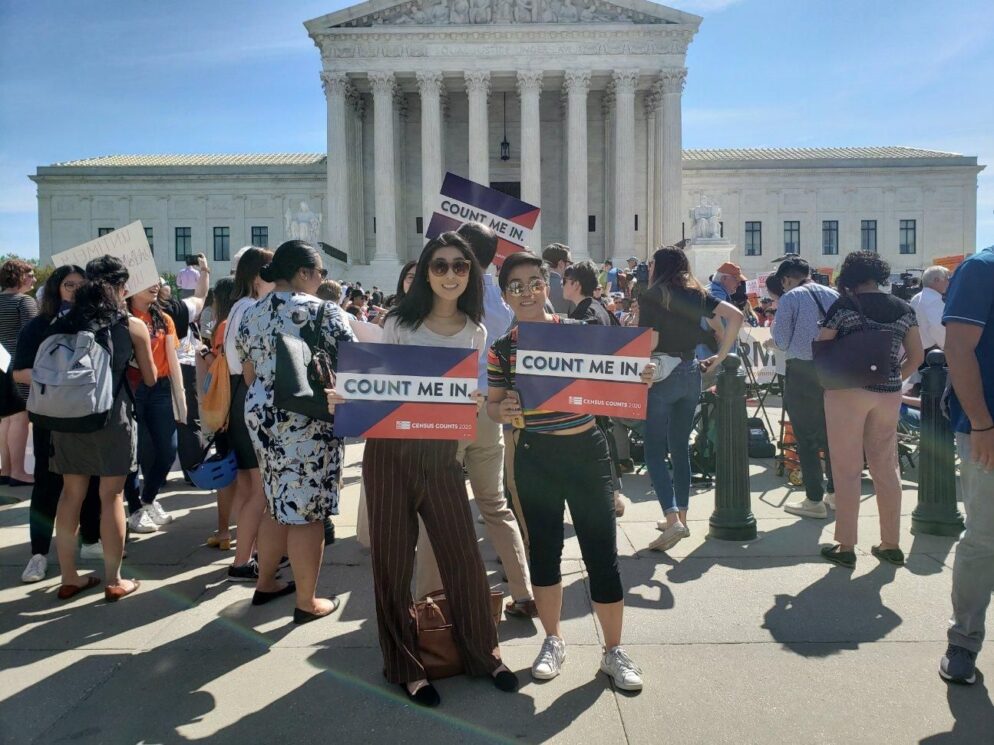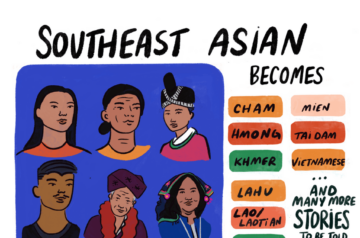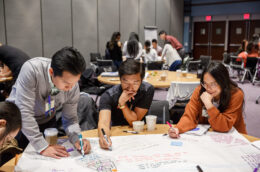The census is the largest publicly available dataset with SEAA data. It directly influences political representation and funding for our communities.
Key resources:
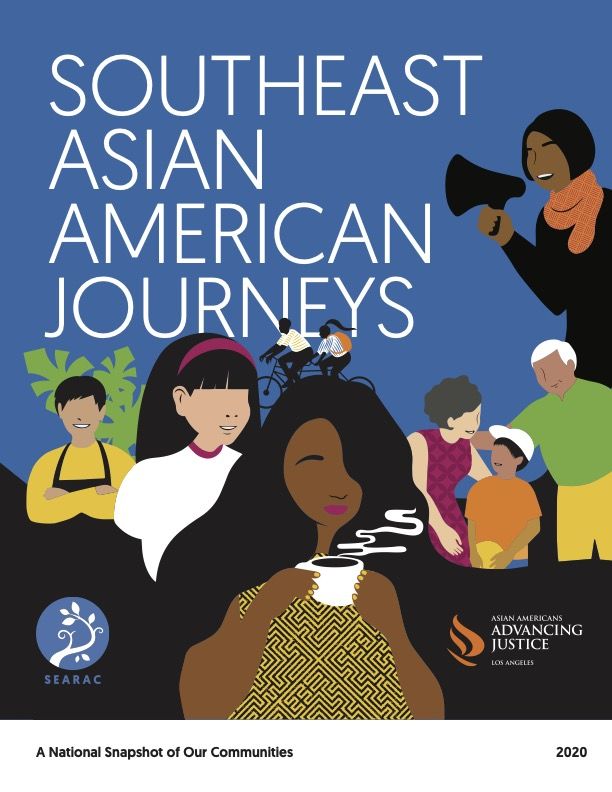
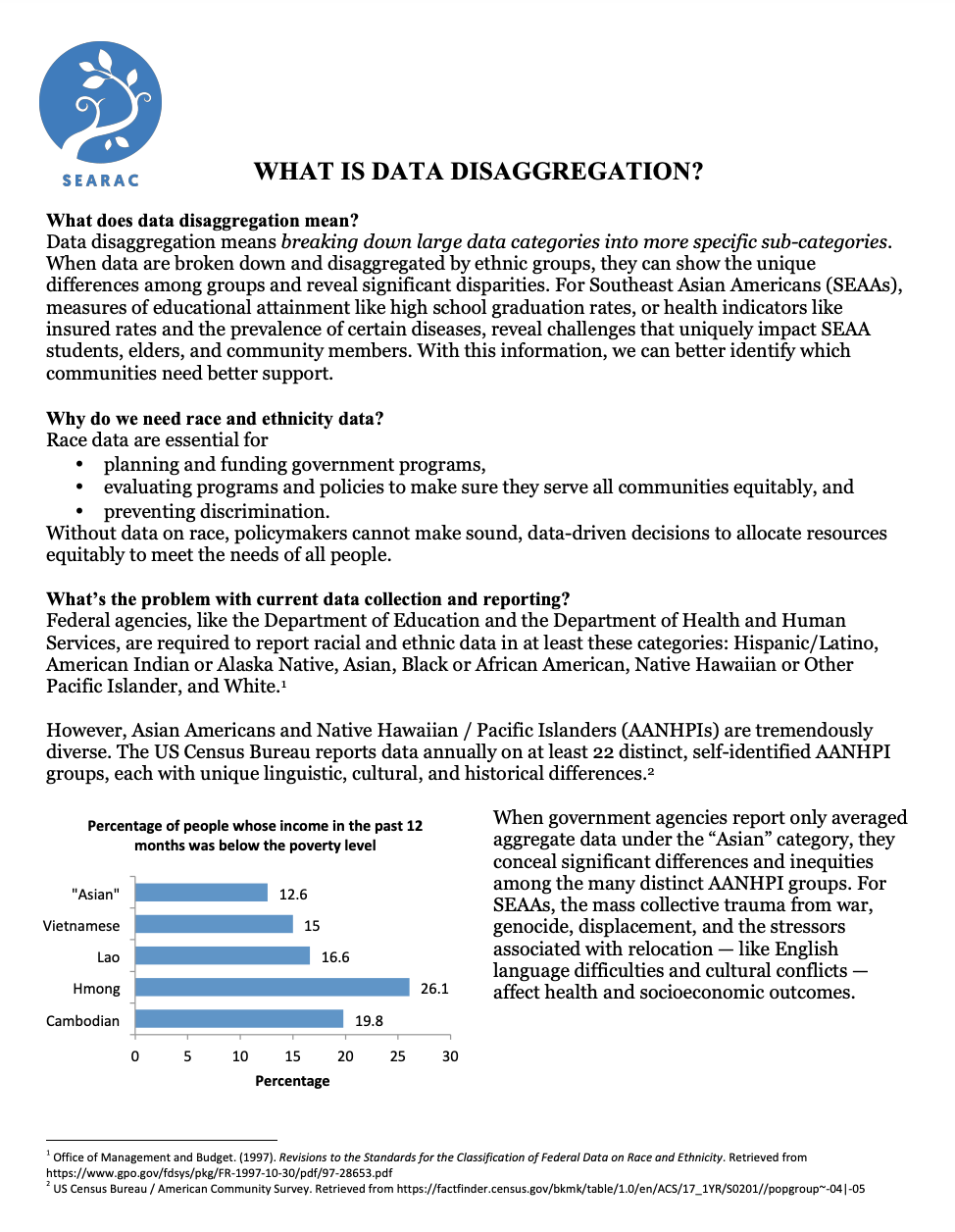
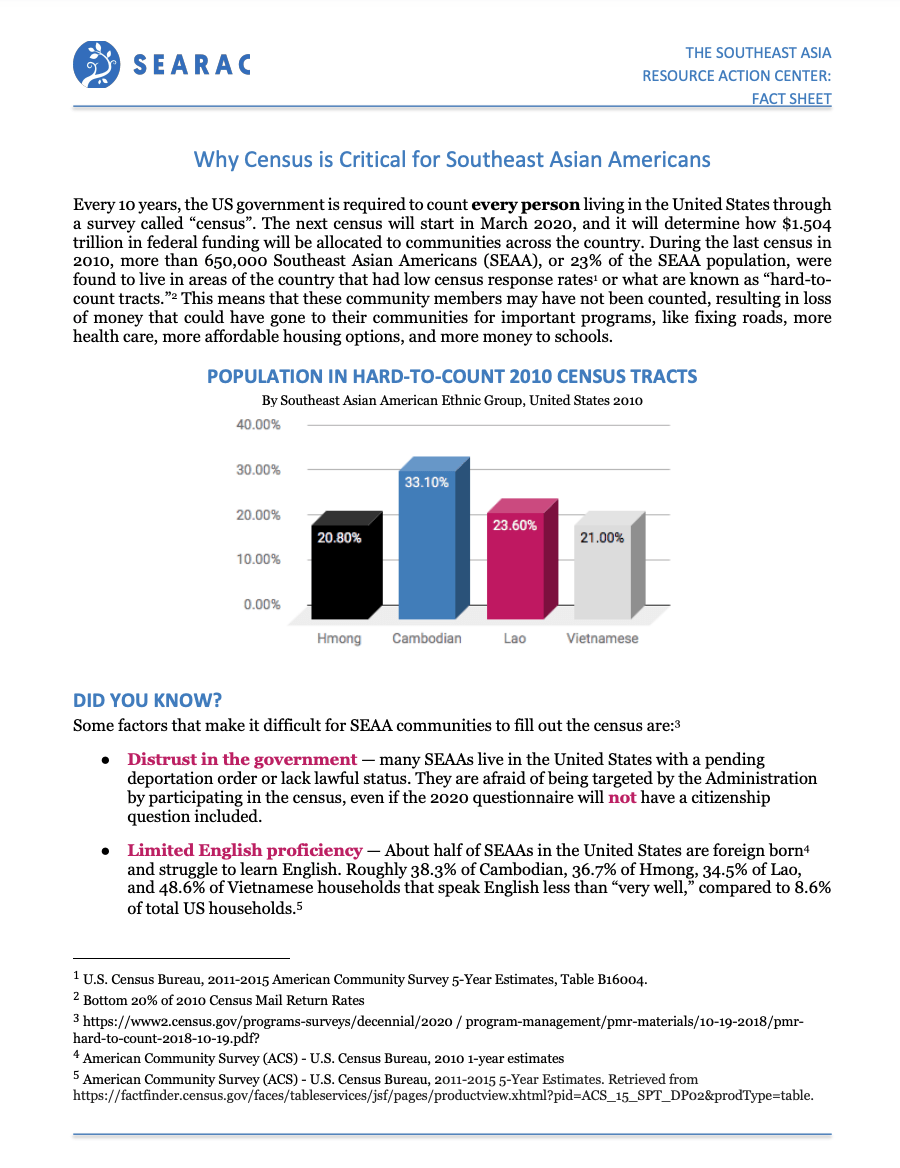
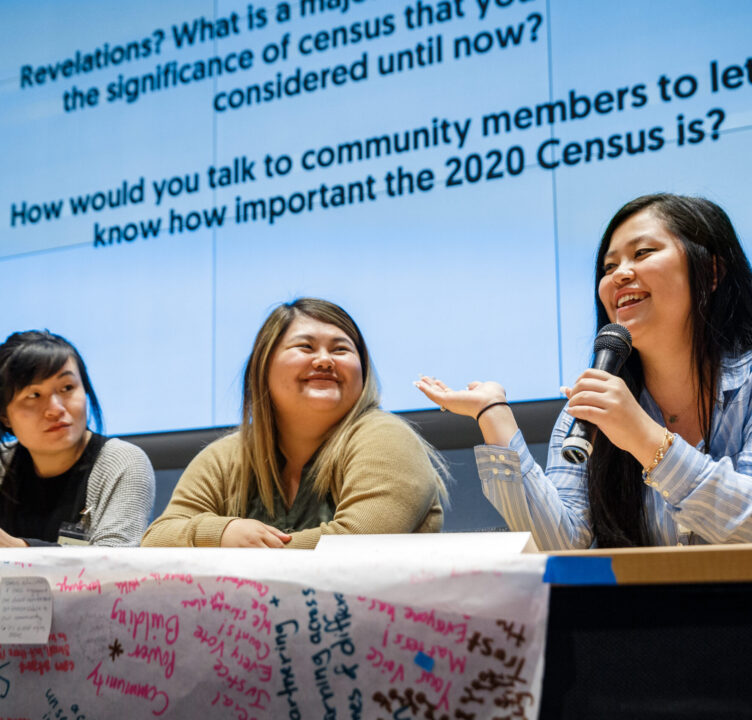
Featured story
Hmong Leaders Meet with Census Director on Hmong Misclassification
On Thursday, May 23, 16 Hmong and Asian American advocates met with Director Robert L. Santos of the US Census Bureau to discuss the need to reclassify the Hmong as Southeast Asian. The meeting comes as a result of a letter and petition with over 1,700 signatures to Director Santos asking the Bureau to address the issue and meet with community leaders.
Learn more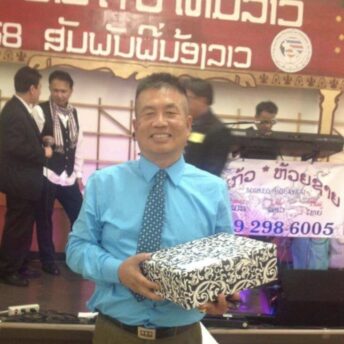
“We talk about how it is so important for us as a group of people to participate in the census, so we show up in the data. Once that data comes out, we will have information about ourselves. Right now, we don’t know how many of us live in the Bay Area, or even the city of Richmond.”
Director, Asian Senior/Adult Daycare Center
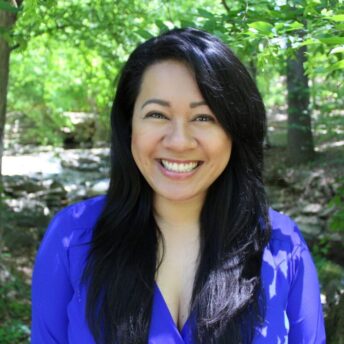
“I want to help Cambodians and other minorities be counted in the 2020 Census. We are a minority of a minority group. We are Asians, but we’re also Cambodians. There are only 260,000 of us in the United States according to the 2010 Census, so having everyone counted is important.”
Technical engineer

“It’s vital for us to know each other as a community, locally and nationally. Where are we, how many of us are there, and how can we use our collective numbers to be changemakers? These are questions I find myself asking when I’m planning my dance classes or looking out to a crowd during a performance.”
Director, Cambodian American Girls Empowering
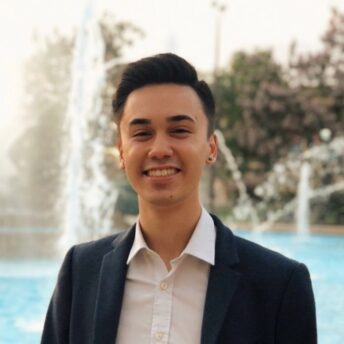
“I’m the son, nephew, and grandson of Vietnamese refugees who benefited from ESL education and other social programs, and I feel like we’ve come full circle now that I’m a first-generation college graduate and ESL teacher. I know that the type of services my school district and I are able to provide relies on data from the Census, so it is so important that educators encourage their community members to complete it.”
ESL Teacher
“When individuals are invisible in data, they remain invisible in policy conversations. To understand how groups within the AAPI community fare in higher education and the specific challenges each face, we must disaggregate data along racial and ethnic lines. Doing so will reveal where inequities exist and, in turn, unlock the full power of postsecondary education to spur social mobility, economic health, and a stronger society.”
Institute for Higher Education Policy
“Without data disaggregation, this system makes students like me invisible, our needs are downplayed, and resources aren’t offered. Data disaggregation allows for students like me to be seen, to get the resources we need, and to reach our fullest potential.”
Minnesota student
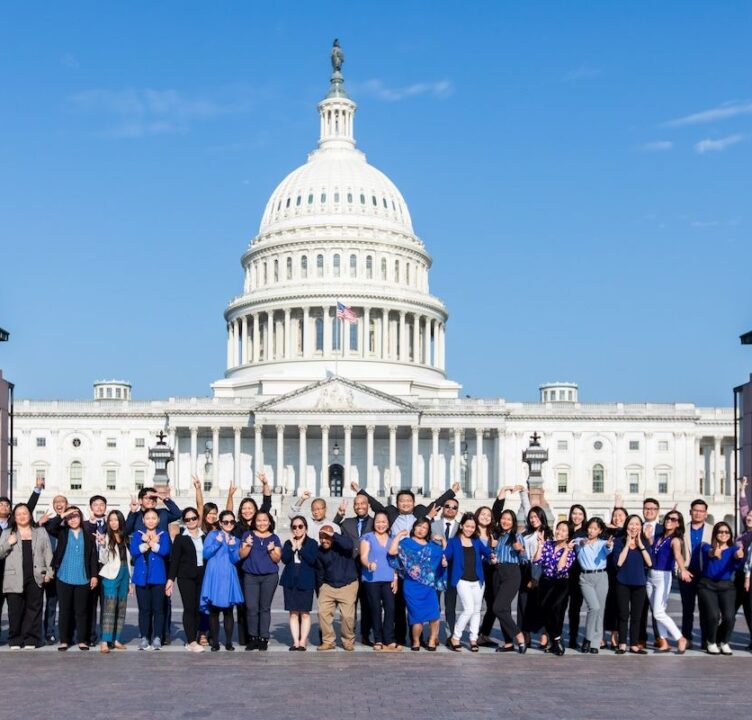
Subscribe to our newsletter for the latest updates on the SEARAC community, and to learn more about how you can get involved.
Nearly 1 in 5 Southeast Asian Americans live at or near poverty—and for many, federally funded education programs are the difference between falling behind or moving forward.
Many SEAA students rely on school support systems built for low-income families.
Cutting these funds means SEAA students will lose the resources they need to thrive.
Our children deserve equal chances—not underresourced classrooms. Tell your US senators to vote NO at the link in our bio and/or call (202) 224-3121 #OurRootsOurPower
Jun 26

Today SEARAC is joining partners across the country to demand the Senate vote NO on the reconciliation bill. Congress is racing to pass a big bad bill that will fund tax cuts for billionaires and supercharge deportations. Tell your US senators to vote NO at bit.ly/SEAApower #OurRootsOurPower
Jun 26

Right now, SEARAC is on the Hill with our #LAT2025 cohort, demanding the Senate vote NO on the reconciliation bill. Congress is racing to pass a big bad bill that will fund tax cuts for billionaires and supercharge deportations. Join us and tell your US senators to vote NO at the link in our bio and/or call (202) 224-3121. #OurRootsOurPower
Jun 26

We’ve officially wrapped up Day 2 of SEARAC’s LAT program! Today was a powerful journey through reflection as participants looked back at the history of our Southeast Asian American community, recognizing where we stand today, and envisioning the future we’re working toward.
Our communications team led a workshop on how to create your narrative, followed by a dynamic panel on Advocacy Communications with our incredible partners. We closed out our day with music, movement, and dancing!
Tomorrow, our participants will take their voices to Capitol Hill, meeting with legislators to advocate for policies that directly impact Southeast Asian American communities. We couldn’t be more proud of the strength, courage, and collective power they’ve built. #LAT2025
Jun 25

SEARAC LAT Day 1 ✅
Today marked the exciting kickoff of SEARAC’s #LAT2025 program! We welcomed our incredible cohort as we began a powerful journey honoring Southeast Asian American history and the resilience of our refugee communities.
Participants took time to reflect on their personal purpose that brings them to this 3-day advocacy training. They then broke out into issue tracks focused on health, immigration, and education policy. Led by SEARAC staff, board members, and facilitators, these sessions offered a deep dive into how these critical issues affect Southeast Asian American communities today.
Follow along @SEARAC for more updates throughout #LAT2025!
Jun 24


